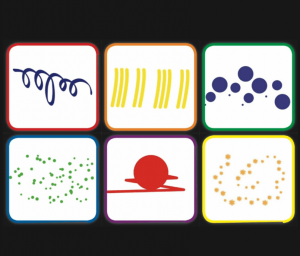 Research continues to show that academic success relies heavily on social and emotional well-being, right from the start. Helping young children to recognize and label feelings supports healthy social-emotional growth and is a vital skill in early childhood education. Emotional awareness includes:
Research continues to show that academic success relies heavily on social and emotional well-being, right from the start. Helping young children to recognize and label feelings supports healthy social-emotional growth and is a vital skill in early childhood education. Emotional awareness includes:
- self-awareness
- self-regulation
- social competence
- social awareness
The Arts can be a tool to help children recognize and express emotions. Music inspires a variety of feelings in the listener and sometimes those feelings can be expressed through yet another art form, such as art, dance, drama, or writing. Try this game at home or in the classroom to support social-emotional development.
Music Game: “See the Music”
Listen to six different pieces of music, each paired with a piece of art. Then, can you match them back up again?
Here are some fun ways to extend the learning of this game:
- After playing the game a few times, point to some of the paintings and ask children to verbally describe the type of music that each painting represents. (Would the music be loud/soft? Fast/slow? What kinds of instruments might make the music?)
- Play the musical samples from this game, without the visuals. Encourage children to be inspired, and away from the screen, to draw, write, paint, dance, or enjoy any other art form while listening! How does their artistic expression change if the music changes?
- Talk with children about how they feel when they listen to each piece of music. Can they use feeling words (not just sound words or visual words) to describe what they’re hearing?
- Put on some brand-new music, of your choice, and create art in response to them.

